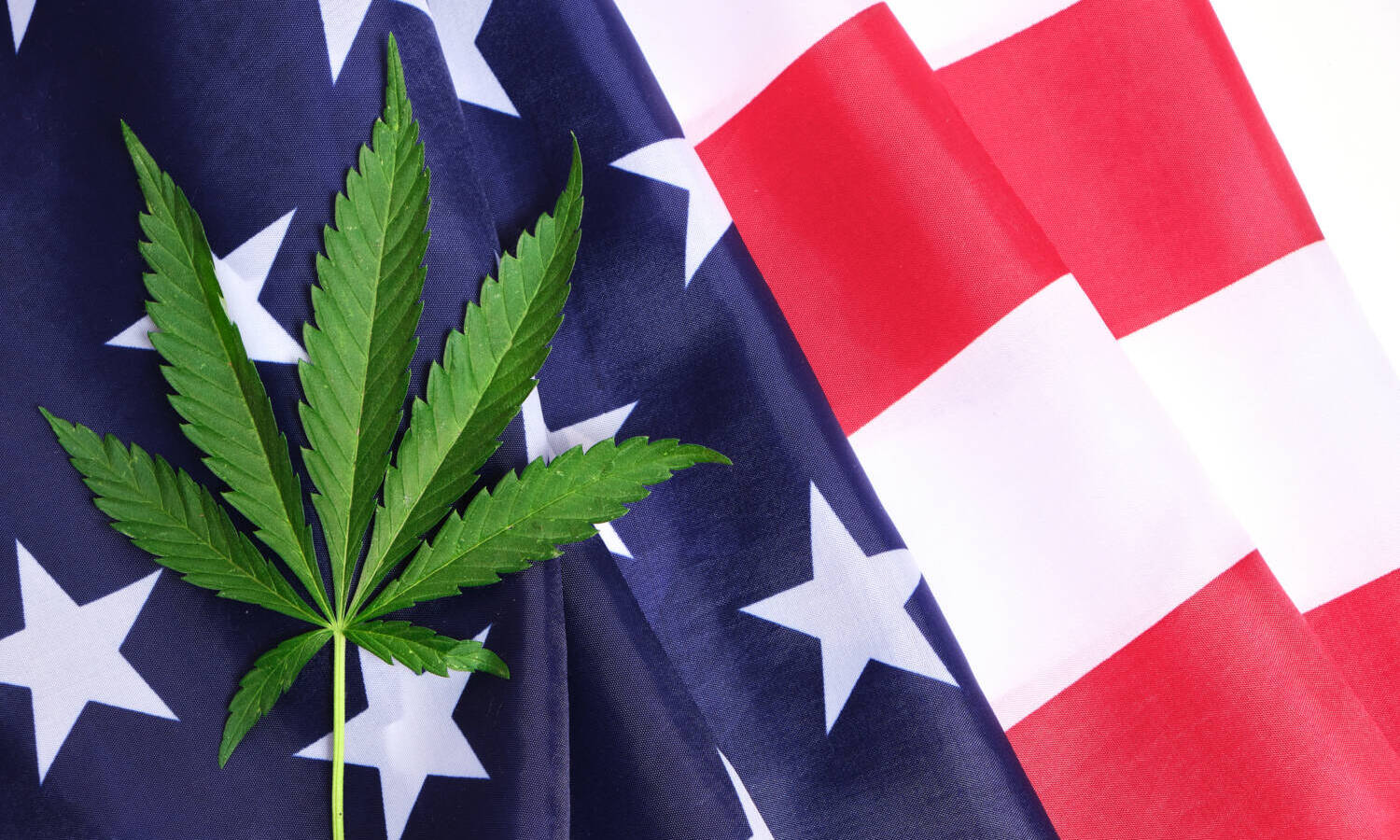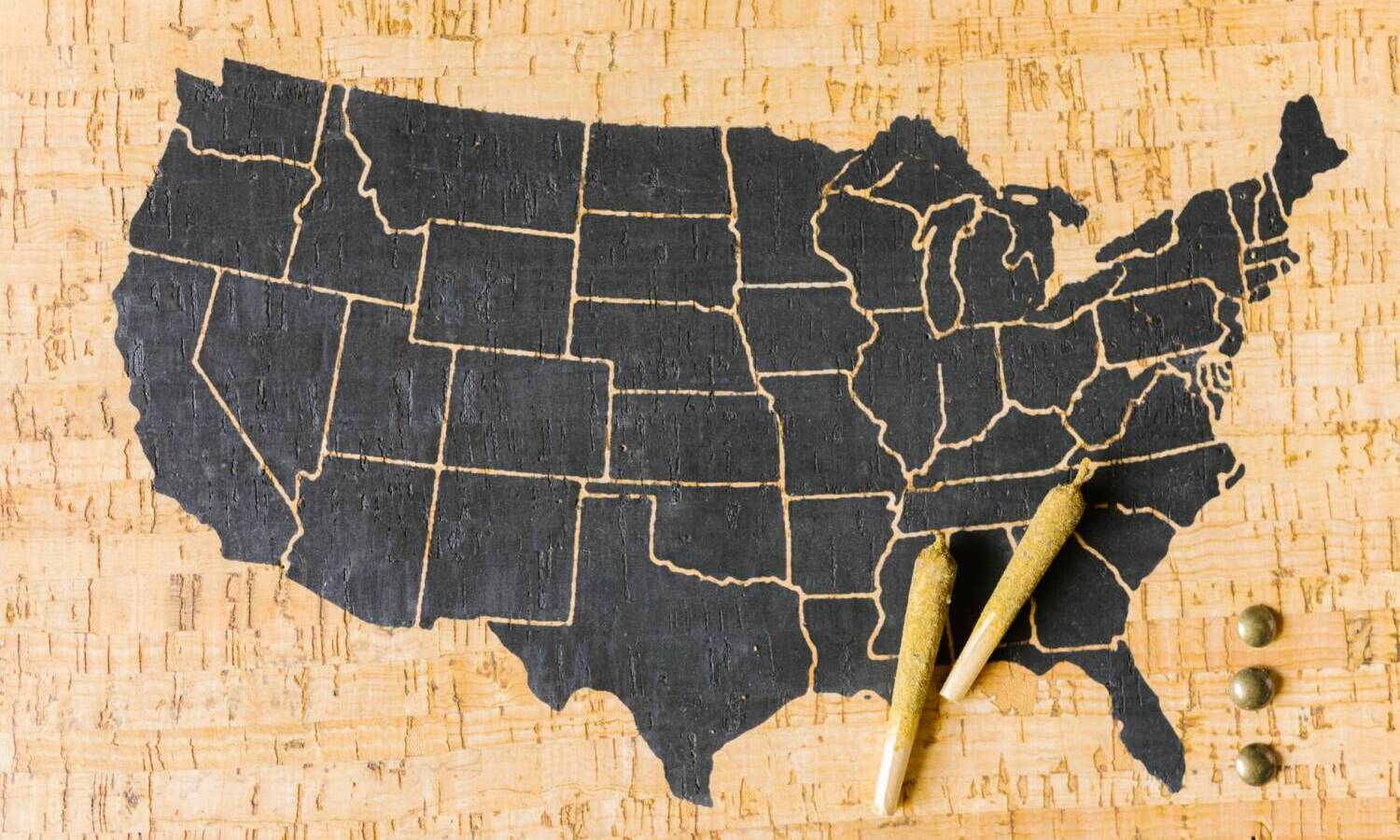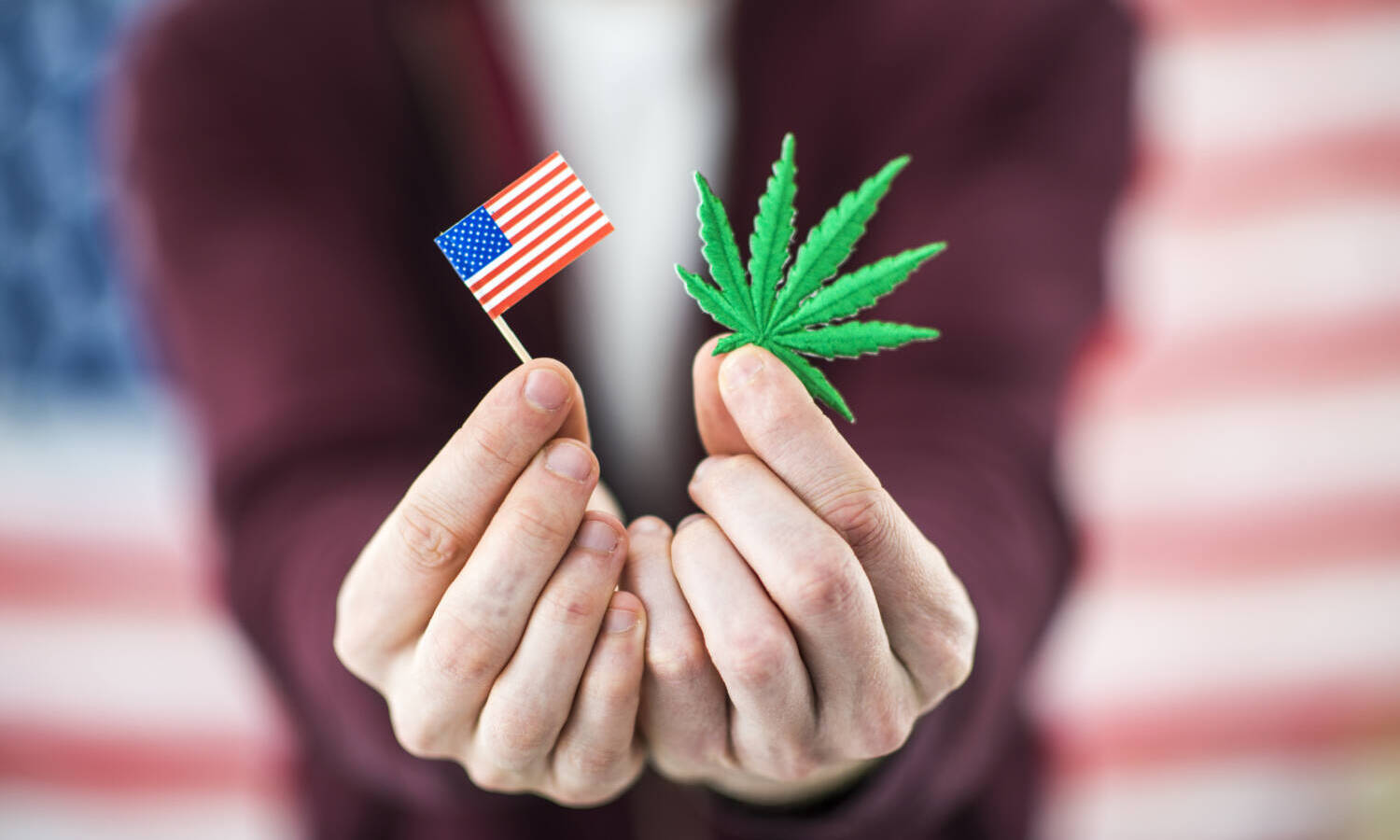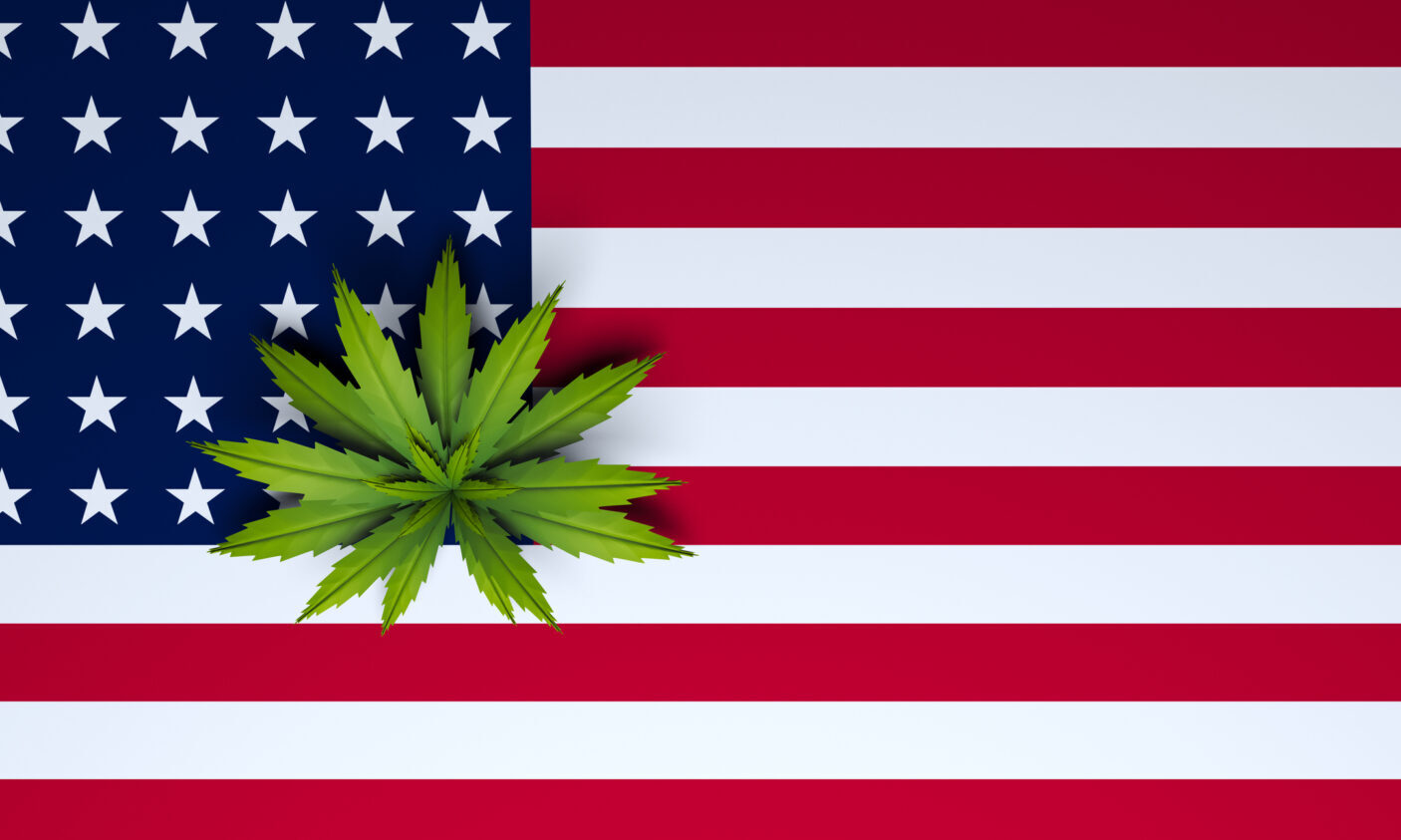Business
In What States Is Weed Legal Right Now?

While some states have fully legalized both the medical and recreational use of cannabis, others only allow medical use, and some still have strict prohibition laws.
Despite federal restrictions on cannabis, many states have made significant strides in legalizing and regulating the plant for medical and recreational purposes.
While not all Americans have access to cannabis, 41 states, Puerto Rico, and the District of Columbia have established medical marijuana programs, with 23 of those states fully legalizing cannabis for adult use or decriminalizing it.
As of November 2022, here is a comprehensive and up-to-date list of the legality of cannabis and its products throughout the United States.

Alabama: Approved a medical marijuana program in 2021, but as of June 2022, there were no doctors certified to issue prescriptions, no licensed dispensaries, and no legal farming of cannabis products.
Alaska: Legalized medical marijuana in 1998, and since 2015, it has been legal to possess and sell cannabis in the state.
Arizona: legal medical marijuana since 2010, and recreational marijuana will become legal once a legalization measure overwhelmingly passed in the 2020 elections is certified.
Arkansas: Only allows medical marijuana, and cultivation is not legal.
California: The first state to legalize medical marijuana in 1996, and the sale of recreational marijuana was approved by voters in 2016.
Colorado: Legalized recreational cannabis in 2012, and it is also legal to privately grow up to six marijuana plants in the state.
Connecticut: Legalized recreational cannabis on July 1, 2021, and allows home cultivation beginning on July 1, 2023.
Delaware: Decriminalized marijuana in 2015 and legalized medical marijuana in 2011, but only a bill to legalize recreational marijuana sales cleared its first legislative hurdle in 2019.
Florida: Allows medical marijuana but not recreational, and Georgia only allows low-THC oil as part of its limited medical program.
Hawaii: Decriminalized recreational marijuana in 2019 and legalized medical marijuana.
Illinois: Legalized both medical and recreational cannabis, with the state legislature passing the law rather than a ballot initiative.
Iowa: Limited medical cannabis program with only processed cannabis products allowed for sale, while

Louisiana: Approved medical marijuana, but only allows certain forms of cannabis for purchase. Maine legalized recreational cannabis in 2016, but retail stores have yet to open.
Maryland: Recently became the 20th state to legalize recreational cannabis, with the program set to go into effect in July 2023, while medical marijuana has been legal in the state since 2014.
Massachusetts: Legal for both medical and recreational use; no reciprocity with other states; adults can grow up to 12 plants.
Michigan: Legal for both medical and recreational use; reciprocity with other states; adults can privately grow up to 12 plants.
Minnesota: Legal for medical use only; possession of small amounts is decriminalized; no reciprocity with other states; no home cultivation allowed.
Mississippi: Legal for medical use only; no operational program yet; limited reciprocity with other states; recreational use is illegal; possession of small amounts is decriminalized for first offense only.
Missouri: Legal for both medical and recreational use; no reciprocity with other states; sales for recreational use expected to start in December 2022.
Montana: Legal for both medical and recreational use; no reciprocity with other states; residents can grow up to four plants at home.
Nevada: Legal for both medical and recreational use; reciprocity with other states; medical patients can grow up to 12 plants.

New Hampshire: Legal for medical use only; possession of small amounts is decriminalized; reciprocity with other states; cultivation is illegal.
New Jersey: Legal for both medical and recreational use; no reciprocity with other states.
New Mexico: Legal for both medical and recreational use; reciprocity with other states; home cultivation is allowed for up to six mature plants.
New York: Legal for both medical and recreational use; no reciprocity with other states; public consumption allowed in some places.
North Dakota: Decriminalized marijuana possession and approved medical marijuana, while Ohio and
Pennsylvania: Approved medical marijuana and decriminalized possession.
Oklahoma: Approved medical marijuana and allows patients to grow their plants.
Oregon: Legalized legalized both medical and recreational marijuana and allows residents to grow their plants.
Rhode Island: Legalized both medical and recreational marijuana, and retail sales are expected to begin soon.
South Dakota: Approved medical marijuana but recreational use remains illegal after a challenge from the Governor.

Texas: Limited medical programs and possession are illegal except for those with medical permits.
Utah: Approved medical marijuana and decriminalized recreational use.
Vermont: Legalized both medical and recreational marijuana and allows residents to cultivate their plants
Virginia: Allows both medical and recreational cannabis use, with a possession limit of up to 1 ounce for adults.
Washington: One of the first states to legalize recreational cannabis, with medical cannabis also legal.
West Virginia: Medical cannabis is legal, but recreational use is not.
Washington DC: Allows medical cannabis and possession of up to 2 ounces of recreational cannabis, but the sale of recreational cannabis is still illegal.
Conclusion
As we have seen, the legal status of cannabis varies greatly across different states in the US. While some states have fully legalized both the medical and recreational use of cannabis, others only allow medical use, and some still have strict prohibition laws. However, the tide is turning, with more and more states moving towards legalization in some form.
As attitudes towards cannabis continue to shift and more research is conducted on its potential benefits and drawbacks, it will be interesting to see how these laws evolve in the future. Whatever happens, cannabis will continue to be a hotly debated topic in the US and around the world for many years to come.
Source: https://thefreshtoast.com/cannabis/in-what-states-is-weed-legal-right-now/
Business
New Mexico cannabis operator fined, loses license for alleged BioTrack fraud

New Mexico regulators fined a cannabis operator nearly $300,000 and revoked its license after the company allegedly created fake reports in the state’s traceability software.
The New Mexico Cannabis Control Division (CCD) accused marijuana manufacturer and retailer Golden Roots of 11 violations, according to Albuquerque Business First.
Golden Roots operates the The Cannabis Revolution Dispensary.
The majority of the violations are related to the Albuquerque company’s improper use of BioTrack, which has been New Mexico’s track-and-trace vendor since 2015.
The CCD alleges Golden Roots reported marijuana production only two months after it had received its vertically integrated license, according to Albuquerque Business First.
Because cannabis takes longer than two months to be cultivated, the CCD was suspicious of the report.
After inspecting the company’s premises, the CCD alleged Golden Roots reported cultivation, transportation and sales in BioTrack but wasn’t able to provide officers who inspected the site evidence that the operator was cultivating cannabis.
In April, the CCD revoked Golden Roots’ license and issued a $10,000 fine, according to the news outlet.
The company requested a hearing, which the regulator scheduled for Sept. 1.
At the hearing, the CCD testified that the company’s dried-cannabis weights in BioTrack were suspicious because they didn’t seem to accurately reflect how much weight marijuana loses as it dries.
Company employees also poorly accounted for why they were making adjustments in the system of up to 24 pounds of cannabis, making comments such as “bad” or “mistake” in the software, Albuquerque Business First reported.
Golden Roots was fined $298,972.05 – the amount regulators allege the company made selling products that weren’t properly accounted for in BioTrack.
The CCD has been cracking down on cannabis operators accused of selling products procured from out-of-state or not grown legally:
- Regulators alleged in August that Albuquerque dispensary Sawmill Sweet Leaf sold out-of-state products and didn’t have a license for extraction.
- Paradise Exotics Distro lost its license in July after regulators alleged the company sold products made in California.
Golden Roots was the first alleged rulebreaker in New Mexico to be asked to pay a large fine.
Source: https://mjbizdaily.com/new-mexico-cannabis-operator-fined-loses-license-for-alleged-biotrack-fraud/
Business
Marijuana companies suing US attorney general in federal prohibition challenge

Four marijuana companies, including a multistate operator, have filed a lawsuit against U.S. Attorney General Merrick Garland in which they allege the federal MJ prohibition under the Controlled Substances Act is no longer constitutional.
According to the complaint, filed Thursday in U.S. District Court in Massachusetts, retailer Canna Provisions, Treevit delivery service CEO Gyasi Sellers, cultivator Wiseacre Farm and MSO Verano Holdings Corp. are all harmed by “the federal government’s unconstitutional ban on cultivating, manufacturing, distributing, or possessing intrastate marijuana.”
Verano is headquartered in Chicago but has operations in Massachusetts; the other three operators are based in Massachusetts.
The lawsuit seeks a ruling that the “Controlled Substances Act is unconstitutional as applied to the intrastate cultivation, manufacture, possession, and distribution of marijuana pursuant to state law.”
The companies want the case to go before the U.S. Supreme Court.
They hired prominent law firm Boies Schiller Flexner to represent them.
The New York-based firm’s principal is David Boies, whose former clients include Microsoft, former presidential candidate Al Gore and Elizabeth Holmes’ disgraced startup Theranos.
Similar challenges to the federal Controlled Substances Act (CSA) have failed.
One such challenge led to a landmark Supreme Court decision in 2005.
In Gonzalez vs. Raich, the highest court in the United States ruled in a 6-3 decision that the commerce clause of the U.S. Constitution gave Congress the power to outlaw marijuana federally, even though state laws allow the cultivation and sale of cannabis.
In the 18 years since that ruling, 23 states and the District of Columbia have legalized adult-use marijuana and the federal government has allowed a multibillion-dollar cannabis industry to thrive.
Since both Congress and the U.S. Department of Justice, currently headed by Garland, have declined to intervene in state-licensed marijuana markets, the key facts that led to the Supreme Court’s 2005 ruling “no longer apply,” Boies said in a statement Thursday.
“The Supreme Court has since made clear that the federal government lacks the authority to regulate purely intrastate commerce,” Boies said.
“Moreover, the facts on which those precedents are based are no longer true.”
Verano President Darren Weiss said in a statement the company is “prepared to bring this case all the way to the Supreme Court in order to align federal law with how Congress has acted for years.”
While the Biden administration’s push to reschedule marijuana would help solve marijuana operators’ federal tax woes, neither rescheduling nor modest Congressional reforms such as the SAFER Banking Act “solve the fundamental issue,” Weiss added.
“The application of the CSA to lawful state-run cannabis business is an unconstitutional overreach on state sovereignty that has led to decades of harm, failed businesses, lost jobs, and unsafe working conditions.”
Business
Alabama to make another attempt Dec. 1 to award medical cannabis licenses

Alabama regulators are targeting Dec. 1 to award the first batch of medical cannabis business licenses after the agency’s first two attempts were scrapped because of scoring errors and litigation.
The first licenses will be awarded to individual cultivators, delivery providers, processors, dispensaries and state testing labs, according to the Alabama Medical Cannabis Commission (AMCC).
Then, on Dec. 12, the AMCC will award licenses for vertically integrated operations, a designation set primarily for multistate operators.
Licenses are expected to be handed out 28 days after they have been awarded, so MMJ production could begin in early January, according to the Alabama Daily News.
That means MMJ products could be available for patients around early March, an AMCC spokesperson told the media outlet.
Regulators initially awarded 21 business licenses in June, only to void them after applicants alleged inconsistencies with how the applications were scored.
Then, in August, the state awarded 24 different licenses – 19 went to June recipients – only to reverse themselves again and scratch those licenses after spurned applicants filed lawsuits.
A state judge dismissed a lawsuit filed by Chicago-based MSO Verano Holdings Corp., but another lawsuit is pending.
Source: https://mjbizdaily.com/alabama-plans-to-award-medical-cannabis-licenses-dec-1/
-

 Business2 years ago
Business2 years agoPot Odor Does Not Justify Probable Cause for Vehicle Searches, Minnesota Court Affirms
-

 Business2 years ago
Business2 years agoNew Mexico cannabis operator fined, loses license for alleged BioTrack fraud
-

 Business2 years ago
Business2 years agoAlabama to make another attempt Dec. 1 to award medical cannabis licenses
-

 Business2 years ago
Business2 years agoWashington State Pays Out $9.4 Million in Refunds Relating to Drug Convictions
-

 Business2 years ago
Business2 years agoMarijuana companies suing US attorney general in federal prohibition challenge
-

 Business2 years ago
Business2 years agoLegal Marijuana Handed A Nothing Burger From NY State
-

 Business2 years ago
Business2 years agoCan Cannabis Help Seasonal Depression
-

 Blogs2 years ago
Blogs2 years agoCannabis Art Is Flourishing On Etsy









